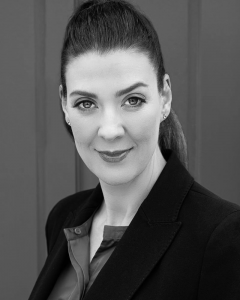What’s the biggest factor impacting happiness in later life? According to Brian Herd, author of The Ageing Parent Trap, it’s not our health, the state of our marriage, or even the question do I have enough money to live on in retirement .. the biggest factor is your parents.
Having worked in elder law for some 20 years he has noticed that longevity has a problem to confront, and that is the longer you live, the more frail you become. He calls it “frailty creep”.
Failing to plan leads to family breakdown
Most adult children, of course, subconsciously know that, but fail to confront it. They wait and they watch and they have a subconscious fear about something happening. And there’s no doubt that it is a complex area, you’ve got family dynamics, financial and legal circumstances all entwined and then you can add another layer called parents-in-law.
And then, it happens. You get a call from the hospital to say, mum’s in hospital. A day later they say that they’ve done everything they can, they can’t do anything more, she has to leave and she can’t go home.
That’s called crisis management. And so many families enter into that crisis management stage because they’ve never planned or confronted what is almost inevitable. So they become frantic, they flail and then ultimately, the family fails. We have a failed family because they failed to confront it.
You see the trouble is that the crisis puts a lot of pressure on the siblings in terms of coming together to try and work together in a sort of coalition to act quickly in the best interests of their parents. That is complicated in many cases because of repressed animosity and jealousies between children. They’re spread all over the world, and you’re left with one child who happens to be located near the parents. Brian calls this child “the martyr child”. So they become the point of contact and the point of tension and stress that can lead to all sorts of adverse consequences, particularly if they are the decision maker for their parents.
Suddenly they’re descended upon by all the other siblings from all over the place saying, what’s happening? What are you doing? Why are you doing that? It leads to tension that would not have happened if they’d all confronted this before the event occurred.
It is not uncommon that the family totally breaks down, they don’t gather at Christmas anymore.
And that breakdown adversely impacts on the parents, but also filters down to the children, the nieces and nephews, the whole family unit gets destroyed by the effect of this breakdown of relationships. It’s really, really sad.
Your questions answered
Brian Herd and Rachel Lane spoke to Lisa Leong on ABC Melbourne about some of the common traps people fall into when trying to help their ageing parents and answered caller questions that included:
- “What are the financial implications of selling your parents home to pay for aged care?”
- “My 90 year old mother is quite well off and wants to gift money to family members, is it a good idea?”
- “I’m having trouble getting Centrelink and my mother’s GP to recognise my power of attorney and give me the information I need”
- “Can I use my Power of Attorney to stop my Mum from having a relationship with another resident in the aged care home?”
- “I share Power of Attorney with my brother but I’m worried he is going to lose capacity”
- “I don’t want to sell my parents home is there any problem with paying the RAD for them?”
- “Can I resign from being the executor of a will?”
- “Can I contest my siblings Power of Attorney?”
- “How can I start the conversation about aged care with my parents?”
- “What happens to the RAD when the person living in aged care dies?”
You don’t need to navigate this part of life on your own. Enlist an Aged Care Guru to help you navigate the financial side of aged care for the best outcome for your parents, and peace of mind for yourself.







